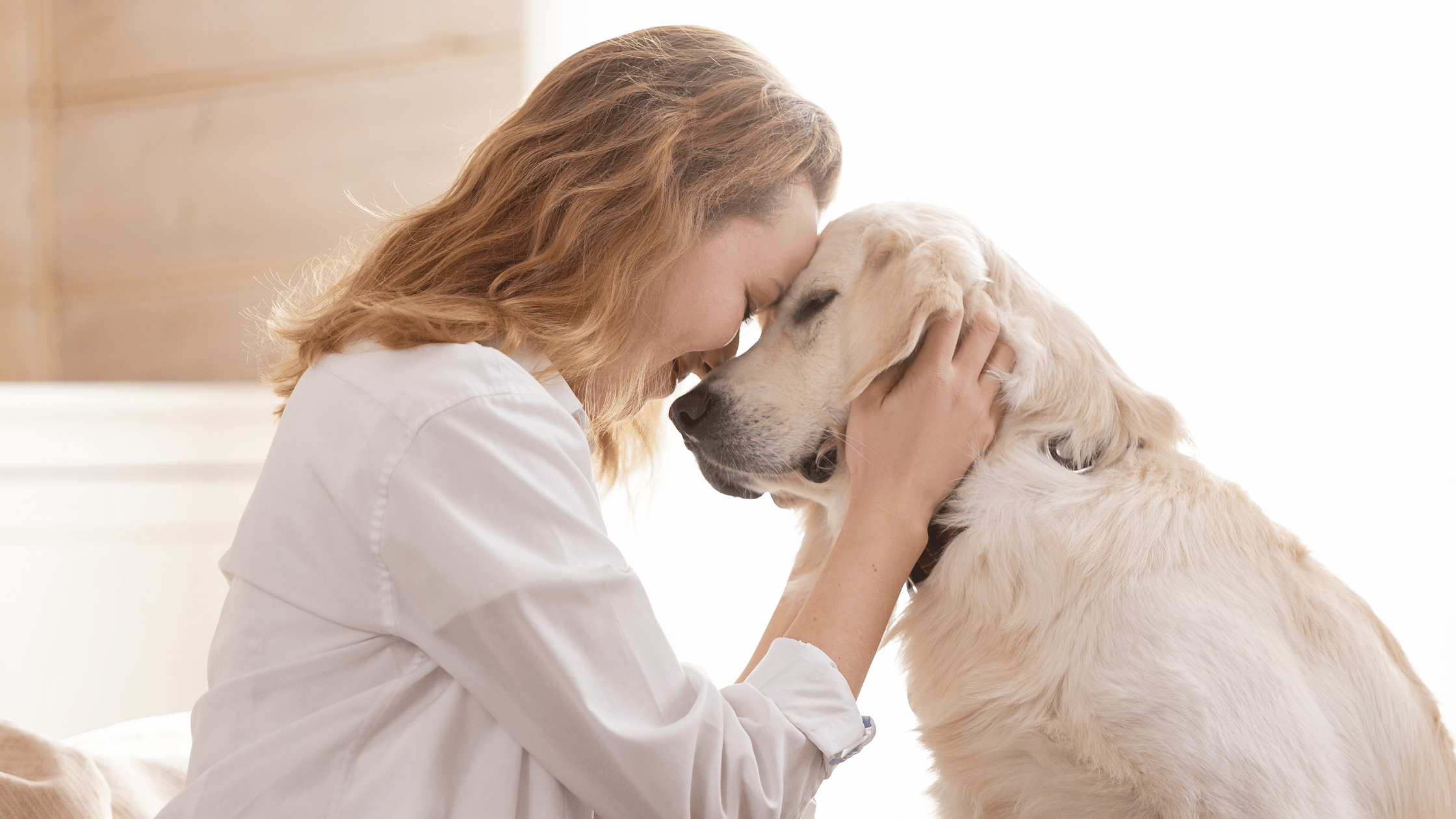Probiotics have gained significant attention in recent years for their potential health benefits, not only for humans but also for our furry companions. Just as probiotics can support human gut health, they can play a crucial role in maintaining and improving the digestive health of pets. In this comprehensive guide, we’ll explore what probiotics are, how they benefit pets, and how you can incorporate them into your pet’s diet for optimal health.
What Are Probiotics?
Probiotics are live microorganisms, often referred to as “good” or “friendly” bacteria, that provide health benefits when consumed in adequate amounts. These beneficial bacteria help maintain a balanced microbial environment in the gut, supporting overall digestive health. Probiotics can be found naturally in certain foods and are also available as dietary supplements.
In pets, as in humans, the gut microbiome plays a vital role in digestion, nutrient absorption, immune function, and overall health. An imbalance in the gut microbiome, often caused by factors such as poor diet, stress, illness, or antibiotic use, can lead to various digestive and health issues.
Benefits of Probiotics for Pets
The inclusion of probiotics in your pet’s diet can offer numerous health benefits, particularly for their digestive system. Here are some key advantages of probiotics for pets:
-
Improved Digestion:
- Probiotics aid in the breakdown of food, enhancing nutrient absorption and promoting more efficient digestion. This can be particularly beneficial for pets with sensitive stomachs or digestive disorders.
-
Enhanced Immune Function:
- A significant portion of the immune system resides in the gut. By maintaining a healthy balance of gut bacteria, probiotics can help strengthen your pet’s immune response and reduce the risk of infections and illnesses.
-
Reduction of Diarrhea and Constipation:
- Probiotics can help regulate bowel movements, reducing the incidence of diarrhea and constipation. They can be especially useful during and after antibiotic treatment, which often disrupts the natural balance of gut bacteria.
-
Alleviation of Food Allergies and Intolerances:
- Probiotics can help manage food allergies and intolerances by promoting a healthy gut barrier and reducing inflammation. This can lead to fewer gastrointestinal symptoms and improved overall health.
-
Prevention of Harmful Bacterial Overgrowth:
- By promoting the growth of beneficial bacteria, probiotics can help prevent the overgrowth of harmful bacteria, such as Clostridium and Salmonella, which can cause severe digestive issues.
-
Reduction of Gas and Bloating:
- Probiotics can help reduce gas and bloating by enhancing the digestion and absorption of nutrients, leading to a more comfortable digestive process for your pet.
-
Support for Skin and Coat Health:
- A healthy gut can lead to improvements in skin and coat health. Probiotics can help reduce inflammation and support the production of essential nutrients that contribute to a shiny coat and healthy skin.
Types of Probiotics for Pets
There are several strains of probiotics that are beneficial for pets, each offering unique health benefits. Some of the most common and effective probiotic strains for pets include:
-
Lactobacillus acidophilus:
- This strain helps maintain a healthy balance of gut bacteria and supports overall digestive health. It is known for its ability to improve lactose digestion and reduce the symptoms of lactose intolerance.
-
Bifidobacterium animalis:
- This probiotic strain is particularly effective in reducing the severity of diarrhea and improving stool consistency. It also supports immune function and helps maintain a healthy gut barrier.
-
Enterococcus faecium:
- This strain aids in the digestion of food and the absorption of nutrients. It also helps prevent the overgrowth of harmful bacteria and supports overall gut health.
-
Saccharomyces boulardii:
- Unlike bacterial probiotics, Saccharomyces boulardii is a yeast that can survive antibiotic treatment. It is effective in preventing and treating antibiotic-associated diarrhea and other gastrointestinal disorders.
-
Bacillus coagulans:
- This spore-forming probiotic can withstand harsh stomach acids and reach the intestines intact. It supports digestive health, reduces inflammation, and helps manage symptoms of irritable bowel syndrome (IBS).
Incorporating Probiotics into Your Pet’s Diet
Introducing probiotics into your pet’s diet can be done in various ways, depending on your pet’s preferences and specific health needs. Here are some common methods for incorporating probiotics:
-
Probiotic Supplements:
- Probiotic supplements are available in various forms, including powders, capsules, and chews. They can be easily mixed into your pet’s food or given as treats. Ensure that you choose a high-quality supplement specifically formulated for pets.
-
Probiotic-Enhanced Pet Food:
- Many pet food manufacturers now offer probiotic-enhanced formulas. These foods are designed to provide a balanced diet along with the benefits of probiotics. Look for brands that use clinically tested probiotic strains and provide transparent information about their products.
-
Fermented Foods:
- Fermented foods, such as yogurt, kefir, and sauerkraut, are natural sources of probiotics. While not all pets will enjoy or tolerate these foods, they can be a healthy addition to your pet’s diet in small amounts. Ensure that any fermented foods you provide are safe for pets and do not contain harmful additives.
-
Probiotic Treats:
- Probiotic treats are a convenient and enjoyable way to give your pet their daily dose of probiotics. These treats are often formulated with additional health benefits, such as improved dental health or joint support.
Monitoring Your Pet’s Response to Probiotics
As with any dietary change, it’s essential to monitor your pet’s response to probiotics and make adjustments as needed. Here are some tips for ensuring a positive experience:
-
Start Slowly:
- Introduce probiotics gradually to allow your pet’s digestive system to adjust. Begin with a small dose and gradually increase it to the recommended amount over several days.
-
Observe Changes:
- Keep an eye on your pet’s behavior, stool consistency, and overall health. Positive changes, such as improved digestion and reduced symptoms of gastrointestinal distress, may take a few weeks to become noticeable.
-
Consult Your Veterinarian:
- Before starting probiotics, consult your veterinarian, especially if your pet has underlying health conditions or is taking other medications. Your vet can provide guidance on the appropriate probiotic strains and dosages for your pet’s specific needs.
-
Adjust Dosage if Necessary:
- If you notice any adverse effects, such as increased gas or diarrhea, consider adjusting the dosage or switching to a different probiotic strain. Not all probiotics work the same way for every pet, so it may take some trial and error to find the best fit.
Probiotics and Special Health Conditions
Probiotics can be particularly beneficial for pets with specific health conditions. Here’s how probiotics can support pets with common health issues:
-
Gastrointestinal Disorders:
- Probiotics can help manage chronic gastrointestinal disorders, such as inflammatory bowel disease (IBD) and irritable bowel syndrome (IBS), by reducing inflammation and promoting a healthy gut environment.
-
Antibiotic Treatment:
- Antibiotics can disrupt the natural balance of gut bacteria, leading to diarrhea and other digestive issues. Probiotics can help restore this balance and prevent antibiotic-associated gastrointestinal problems.
-
Allergies and Skin Conditions:
- By supporting a healthy immune system and reducing inflammation, probiotics can help manage allergies and improve skin conditions, leading to healthier skin and coat.
-
Senior Pets:
- Older pets often experience a decline in digestive health and immune function. Probiotics can support overall health and improve the quality of life for senior pets by enhancing nutrient absorption and boosting immune response.
-
Stress and Anxiety:
- Stress and anxiety can negatively impact gut health, leading to digestive issues. Probiotics can help mitigate these effects by promoting a balanced gut microbiome and supporting overall well-being.
Conclusion
Probiotics play a vital role in maintaining and improving your pet’s digestive health. By promoting a healthy balance of gut bacteria, probiotics can enhance digestion, boost immune function, and alleviate various gastrointestinal issues. Whether through supplements, probiotic-enhanced pet food, or natural sources, incorporating probiotics into your pet’s diet can lead to significant health benefits.
Monitoring your pet’s response to probiotics and consulting with your veterinarian can help ensure the best outcomes. With the right approach, probiotics can be a valuable addition to your pet’s health regimen, supporting their overall well-being and enhancing their quality of life.



